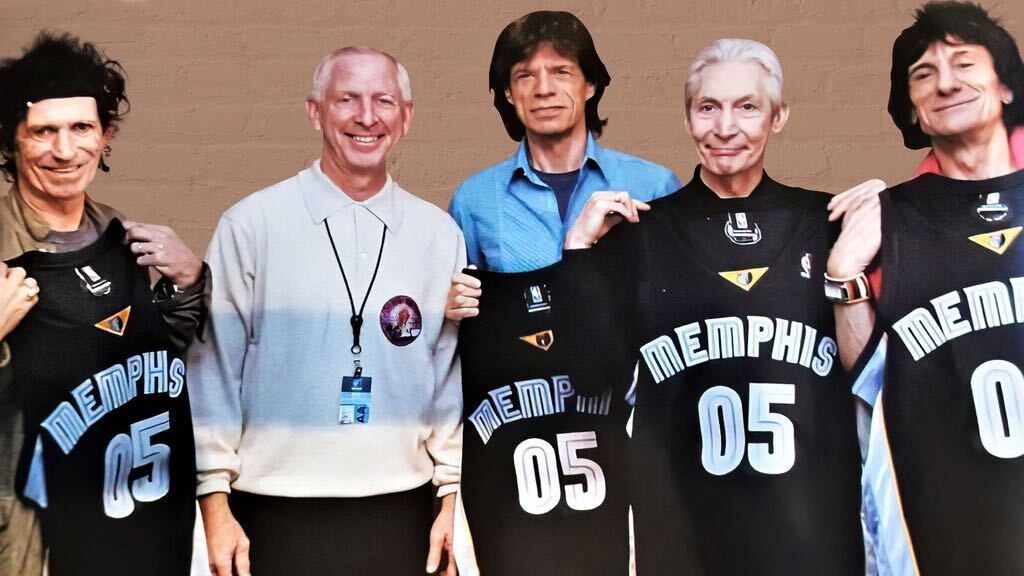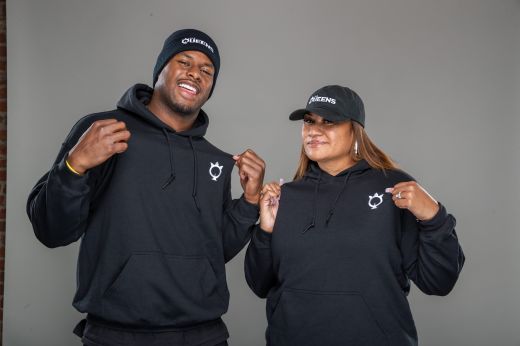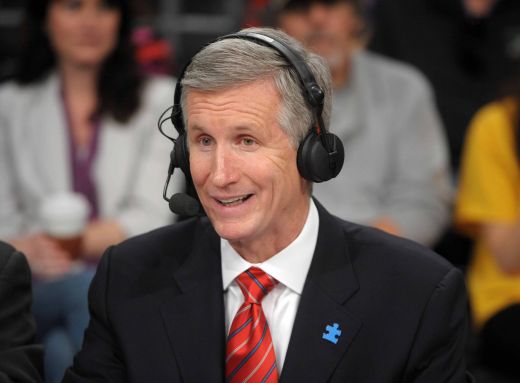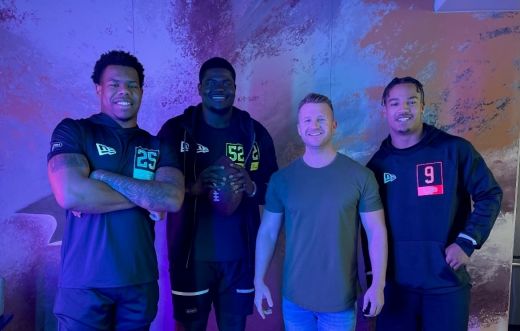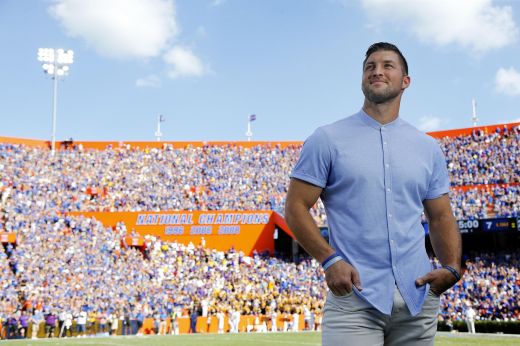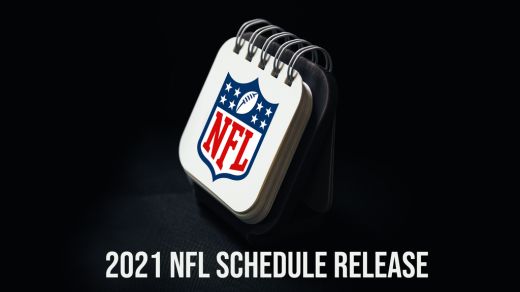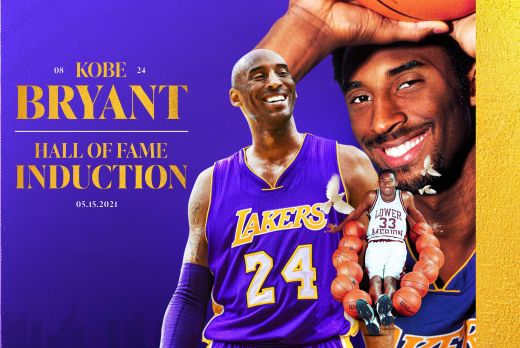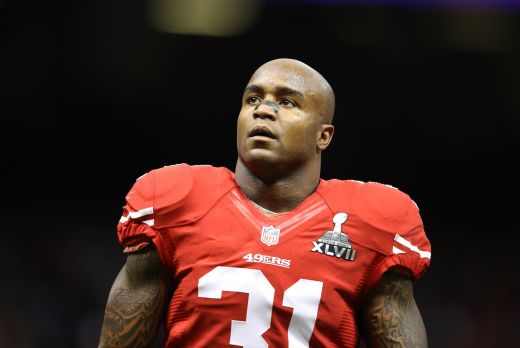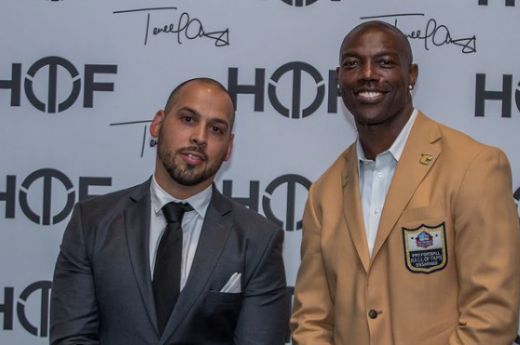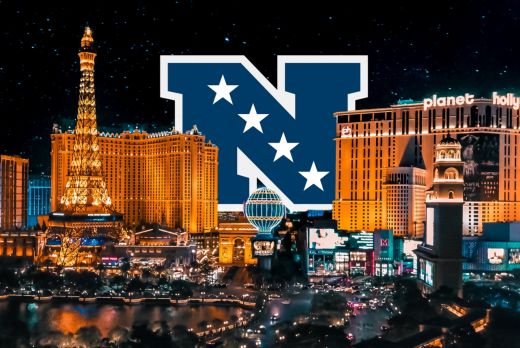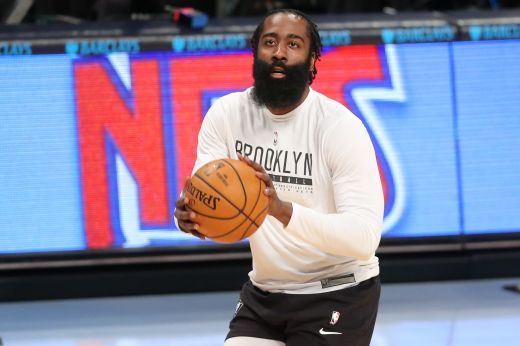With a wealth of experience in sports management, Andy Dolich is still innovating five decades into his career. In a sports odyssey that has taken him into front offices of teams in every major professional sports league, Dolich is now the Chief Operating Officer of Fan Controlled Football and just released Loss of Logo, an e-book about the world of sports management.
Fan Controlled Football’s first season concluded in March. For the uninitiated, FCF is the first professional sports league where all of the plays are called by fans. The league includes a live weekly player draft based on fan voting and encourages players to celebrate TDs.
The league currently has four teams and its 7v7, hour-long games are played in a studio arena and streamed live on Twitch. Over two million people tuned in for the playoffs, signifying the fledgling league is gaining traction. FCF also has an impressive ownership group which includes Quavo from Migos, Richard Sherman and Marshawn Lynch, among others.
Dolich, a Bay-Area transplant from Long Island, is in his 70s and may seem like an unlikely candidate to be involved in such a forward-thinking league. That’s until you get to know him and the places his career has taken him.
Dolich graduated with a degree in government from American University and made the varsity basketball team there. Instead of pursuing a career in the state department, he ultimately decided to go to Ohio University to earn a masters in sports administration, the first such program of its kind in the USA.
“So I really appreciated, without knowing it, what teamwork was about and that people from all different walks of life could come together and either be a good team, or be dysfunctional, or both,” he told OSDB Sports recently.
:At American, I’d speak to someone and say ‘Hi, what’s your dad do’ ‘Oh he’s the ambassador from Turkey’ and I’d go, ‘Hmmm my dad’s a salesman in the garment district’ or ‘Hi what’s your mom do?’ ‘She’s the undersecretary of agriculture.’ So, I realized pretty quickly that government wasn’t going to be a place I could mature into.”
The program at Ohio was the brainchild of late Dodgers owner Walter O’Malley and included a six-month internship with a professional team. Then Philadelphia 76ers GM Don DeJardin hired Dolich and a few others from Ohio University and Dolich stayed on full-time after earning his degree.
As fortune, or misfortune would have it, that Sixers team would end up making history. The 9-73 record the Sixers compiled in the 1972-73 season remains the worst 82-game record in NBA history.
“So, without realizing it at the time 9-73 is my Cal Ripken, my Joe DiMaggio, my Wilt Chamberlain 100, that’s my personal record, Dolich said with pride. “I never want it to be broken and what was it, the Charlotte team in the strike shortened year, they were 6-60, I think if you look back.
“Real s--t is a full schedule, you can’t pawn off a strike-shortened season as something real. Nobody’s ever going to be this sh---y again for so many reasons: the number of teams, the quality of play and I truly believe that. It’s a record that will stay forever.”
Following that unceremonious season, DeJardin was fired. That gave Dolich and a bunch of other twenty-somethings free reign, something unimaginable in today’s NBA.
“We had more ability to help make decisions and try stuff than we ever would have, let’s say at that time we were working for a great organization like the Knicks or the Celtics or something like that,” he said. “Simply stated, we could create promotions without necessarily running them by the owner and there was no GM, so we had a promotions director who was well experienced.”
At that time, young Sixers employees would sell tickets door to door. Some innovative promotions were also important in driving attendance for a team in disarray.
“Nobody was coming to Sixer games and when you go to games teams would give away such crap. ‘hey it’s a poster of Leroy Ellis,’ who cares? Dolich said. “By the time people left the game it would be in the garbage can.
“So, we came up with something called the Year of the Uniform and figured we’d dress kids, and even though we were terrible, younger kids don’t know the team is terrible. ‘Hey I got a free T-shirt, I got gym shorts, I got socks, I got a cap, I got a gym bag,’ and parents would like it. If you came to selected games, you would get that item.
“I think we changed the dynamic, a lot of times teams would give stuff away on really crappy games, meaning games that they thought they wouldn’t draw, to bring a few extra people. We created something called Power Promotion.
“So, let’s take the games like the Knicks and the Celtics or somebody else that was really good and let’s promote those games. So maybe we get to a sellout and maybe we get an upset and people will walk out with a free piece of the uniform and be ecstatic and tell everybody, ‘we had a great time, we got free s--t and we’re coming back to the next game because we can get the gym bag.’ ”
Dolich credits Eddie Gottlieb, who drafted Chamberlain, and Harvey Pollack, who was responsible for the creation of the triple-double, as mentors. Dolich’s advice for young people looking to break into sports management:
“Run to chaos and disaster, that’s the place where you’re going to be able to build a career,” he suggests. “If you look at whoever wins the NBA championship in a few weeks, think about how many resumes they’re going to get that week and then go and look at the team with the worst record of the past season, how many are they going to get?
“My advice is go to the place that’s falling apart, that’s having difficulty. That’s where you’re going to learn the most and where you’re going to probably get the skills you’re going to need to move up the ladder.”
In 1974, Dolich became the business manager of the Maryland Arrows of the National Lacrosse League. He was the Director of Marketing for the Washington Capitals from 1976-1978 and later executive VP and General Manager of the Washington Diplomats of the North American Soccer League from 1978-1980. Dolich certainly wasn’t, and still isn’t, afraid to try new things.
“We did pretty well in attendance for the Arrows and when the Caps were looking for a marketing director I just happened to be in the right place at the right time,” he said. “Because there were connections between the NHL and the NLL, hard to conceptualize this, but there were some NHL stars that played in our league to stay in shape in the offseason.
Doug Favell, who was the goalie for the Flyers played in our league. Rick Dudley who was a terrific player for the Buffalo Sabres played in our league. Can you imagine that today?
“When Madison Square Garden became the owner of the Diplomats, as the NASL was growing and the Cosmos were the national story, I was offered the job as general manager. I’m like ‘holy crap are you kidding me, a punk from Valley Stream, Long Island? Yeah, I’ll take it. I had a chance to work with one of the greatest 10 superstars in the history of soccer, a guy named Johan Cruuff.”
The Diplomats folded in 1980 and Dolich once again ran towards chaos and disaster and took a job with the Oakland Athletics. The A’s had the MLB’s lowest attendance the previous year and Dolich said the state of the franchise at that time was “worse than many AAA franchises in every way, shape, or form.”
With the Haas family buying the team midway through the 1980 season, things were starting to trend upward.
“We began to rebuild in every way possible, the minor league system which was bare, ultimately getting Major League capable players,” he said.”The business side of the team … there wasn’t one ... there was nobody in the sales and marketing organization. The total front office of business, let’s put aside the team, when I got there, was probably four or five people. But, there was one incredible asset named Billy Martin.”
Dolich and the A’s marketing team used Martin’s personality to their advantage in the famous “Billy Ball” campaign.
“If you know anything about Billy Martin, he was cantankerous,” Dolich recalled. “He was always getting into arguments with umpires, he was always in dust ups at 2 o’clock in the morning at a bar and he was easily marketable.
“With the way we played, Billy would do all kinds of other stuff that not a lot of other managers were doing. So, we, along with our agency, our ad agency, named it Billy Ball. And so we’ll put Billy and his players in this situation which is different and we’ll try to develop personalities for those players outside of just what they’re doing on the ballfield.”
The campaign won a CLIO advertising award and as Dolich says, “We did a bunch of beauties.”
As luck would have it, the A’s would win their first 11 games in 1981 and 17 of their first 18. So, with young stars like Rickey Henderson and Dwayne Murphy the A’s were generating serious national buzz. From 1979 to ‘81, the A’s attendance increased by over 1 million people, even with a lockout-shortened ‘81 season.
If there weren’t a strike Dolich adds, “I think we would’ve broken the one-year attendance increase in the history of baseball.”
In addition to Billy Ball and the turnaround on the field, Dolich brought some of the marketing tactics he used with the Sixers with him.
“I took Year of the Uniform with us to Oakland because it’s easily transferable and nobody owned it,” he said.”We did it again because nobody was wearing A’s stuff just like nobody was wearing Sixers stuff. So, we were able to start attracting a new audience of families to the game through the Power Promotion concept. Yankees coming to town, Red Sox coming to town, you know, other great teams, and it worked.”
Door-to-door season ticket sales across the Bay area were also effective, especially with the San Francisco Giants going through a rough period in the early ‘80s. During his 14-year tenure, the A’s won the World Series in 1989, season-ticket sales increased from 400 to 16,000 and attendance from 800,000 to 2.9 million.
He was then hired as the President of Business Operations for the Golden State Warriors in 1994. But, he and then-owner Chris Cohan didn’t see eye to eye and Dolich was dismissed after nine months.
Reluctant to move with a young family, he started to do consulting work on projects with clients like Nike and the Seattle Mariners. Then, in 2000, he got a call from the late Grizzlies owner, Michael Heisley and started telecommuting as the Vancouver Grizzlies President of Business Operations. He was part of the team that oversaw the move from Vancouver to Memphis.
“Basketball wasn’t gigantic in Vancouver, it was hockey, hockey, hockey. And the reason that we moved wasn’t that we weren’t good, even though we weren’t, it was because of the exchange rate. The Canadian dollar against the US dollar at that time was 67 cents. So, all the money that we were taking in was Canadian dollars other than the NBA national broadcast money which was okay, but not anything like it became and everything that we paid out was in US dollars,” he said.
“There were some tax hurdles, like if you were an American citizen or somebody else and you were in the country for I don’t know, 180 days, you could be taxed at a Canadian rate, which was much higher than the US rate. So, after the season we had the inability of doing promotions and clinics and camps because our players were all gone. They weren’t gonna get hit with that tax.
“So, you had Toronto and Vancouver and what people sort of don’t necessarily focus in on, Toronto’s like the third or fourth largest metro area in North America. Vancouver, not even close, not even close. So, Michael Heisley went to David (Stern) and said this is not working. Michael and David did not have a good relationship at all.
“Mike was an early supporter of Mark Cuban in every way, shape or form, when Mark was butting heads with David. Mike was a really hardcore, made your own fortune businessman from Chicago. But we ultimately were able to convince David this is not going to work in Vancouver, which really bothered David because it screwed up his step of international expansion. But, very quickly we saw Memphis, New Orleans, Louisville and Anaheim as our opportunities.”
Memphis won out over the other candidates and the Grizzlies were quickly integrated into the fabric of the community. During Dolich’s seven-year tenure, the Grizzlies established a base of more than 11,000 season-ticketholders, made their first three playoff appearances and broke ground on their downtown arena, FedEx Forum.
He had a stint as the COO of the San Francisco 49ers from 2008-2010, which meant he completed the cycle of working in every major professional sports league. In 2010, he went back to consulting work where he has actively sought out innovative ideas. Notably, Dolich was a Senior Consultant for The Basketball Tournament, an open tournament with a one-million dollar prize that is broadcast on ESPN.
“Here’s something when we’d tell people about it they’d go ‘hey are you nuts, you can’t do that’ or ‘the NBA won’t allow you to do that’ or ‘where are you getting your players from’ and you’ve seen how incredibly exciting it can be,” Dolich said. “There are hundreds of high-quality players who are out of contract in that time period. Ex-NBAers, international players, college players who haven’t been drafted, etc. And that was another incredible example of being involved in something that people said, no you can’t do that, that’ll never work. Well it did and this is year eight.”
Living around Silicon Valley for over 40 years has certainly rubbed off on Dolich. He credits his network from teaching at the Stanford School of Continuing Studies and his children, who have also worked in sports, for keeping him in touch with a younger demographic.
“One guy said ‘hey you need to meet my friend Sohrob Farudi he’s got this idea called Fan Controlled Football’ and I said, ‘well yeah what is it?’ And he explained it and I go, ‘yeah I’ll talk to Sohrob.’ And that was an absolute terrific conversation, which led to me being hired as a consultant and then coming onto his team, which was just a few people before anybody knew about FCF
And we told people ‘we’re gonna be the first [fan-controlled] professional sport live, it’s not a game, it’s not a video fantasy, it’s real players playing arena ball.’ And voila, we go into the IFL, through the Salt Lake City Screaming Eagles and it works and it was the ultimate laboratory experiment.”
After the initial experiment with fans calling plays for the Screaming Eagles, Fahrudi and others, with Dolich as COO, became serious about implementing the idea as a full league. It was initially slated to launch in 2018 but the group didn’t have enough financial resources at the time. The COVID-19 pandemic, however, presented a unique opportunity with fans barred from arenas and stadiums all across the world.
“Clearly we didn’t have to worry about fans so I think COVID helped us at that time to get the kind of national ink that we got,” Dolich said. “Because there were some investors that went ‘you know I don’t think we see this as gaining traction’ and as soon as what I call the Rudy Gobert domino fell, we heard from a lot of those people because they saw that fans were not gonna be allowed. But, through the technology of FCF, yes they are and it could be from any place.”
It is impressive that FCF was able to get so many high-profile people on board with the idea.
“It came from a lot of their [the FCF founders’] personal connections and then as we started adding people somebody said ‘what are you doing, tell me about that again, how does this work?’ Dolich said. “You know, the Marshawns or Joe Montana, they’re diametrically different people but in the same market it’s like oh yeah I see that, I’m managing my life through the windshield and not the rearview mirror.”

With a few million fans watching live on Twitch, Greg Miller’s Wild Aces defeated Quavo’s Glacier Boys 46-40 in the title game. The fans shrewdly called a QB run for Ed Crouch which won the fan-named “People’s Championship” for the Wild Aces.
As Dolich described the first season as a “laboratory experiment”, the formula worked.There were no COVID-related issues and the technology held up.
Instead of competing with the NFL, FCF started its season the weekend following the Super Bowl. Ex-NFL players Josh Gordon and Johnny Manziel participated and FCF players have drawn NFL interest.
With a growing fanbase and list of sponsors, which includes Champion and Progressive Insurance, FCF is looking toward the future, and other sports too.
“To create momentum in any sport is not easy, so the momentum definitely moved in the right direction and because the fact that the technology worked so well it gave us the ability to look at Season 2 and make a decision that Season 2 is absolutely going to happen with enough financial resources, in the Spring of next year,” Dolich said. “We'll be back in Atlanta and we’ll be bigger and have more teams and more games. We’ll have more owners, opportunities and fans.
“Fan Controlled Football, we think it has an opportunity in other sports. It’s not gonna work in every sport, probably wouldn’t work in soccer and hockey because you can’t necessarily decide where the player is going. Where, let’s say baseball is clearly our next target, is more predictable.”
In the time of fan protests due to the anti-competitive European Super League proposal in soccer, it’s revolutionary for FCF to involve the fans to the extent that they do. Dolich’s favorite part of sports has always been fan engagement and it’s what he has, and will continue to make his living on as long as he can.
“The fan is the engine of all sport. If you don’t have the fan,” he said, “if you’re not building that network, now and in the future, you’re ultimately not gonna have a business. If you’re not thinking about fans, then in my view, you’re going to run into serious trouble. In many instances you look at the business decisions a franchise may make and you can tell it didn’t have any input from the fans and to me that just is illogical and is an easy way to destroy your business
People would say, ‘Andy you got a World Series ring and you’ve been here and you’ve done that and what’s the most significant event or moment’ and I say, ‘well this is probably gonna disappoint you but for me it’d be walking around any of the venues I’ve been and see the amount of fun and interaction and energy that is ongoing in the venue,’ that’s what I’m most proud of and why I’ll try to keep doing it as long as I can keep doing it.”
The next frontier Dolich sees in improving the fan experience? Virtual reality, which he wrote about in 2015.
“How many people from China want to be at the NBA Finals? He asked “A whole bunch, and each year it will get better and better that the virtual opportunity will put them in seats in the arena to experience the game exactly as someone who’s sitting there. That is coming. That’s what I saw, that’s what I’d love to see and other people are seeing it because the technology is catching up.
“Some of it’s right around the corner where you and I will be able to experience everything that the person sitting next to us who’s actually sitting in the seat [at the Olympics] in Tokyo and when you just think about that as a monetizable opportunity, it’s an untold story that is starting to be told.”
Despite not being a “technology guy,” Dolich still runs towards chaos and is at the forefront of fan engagement and innovation, fifty years into his career.
